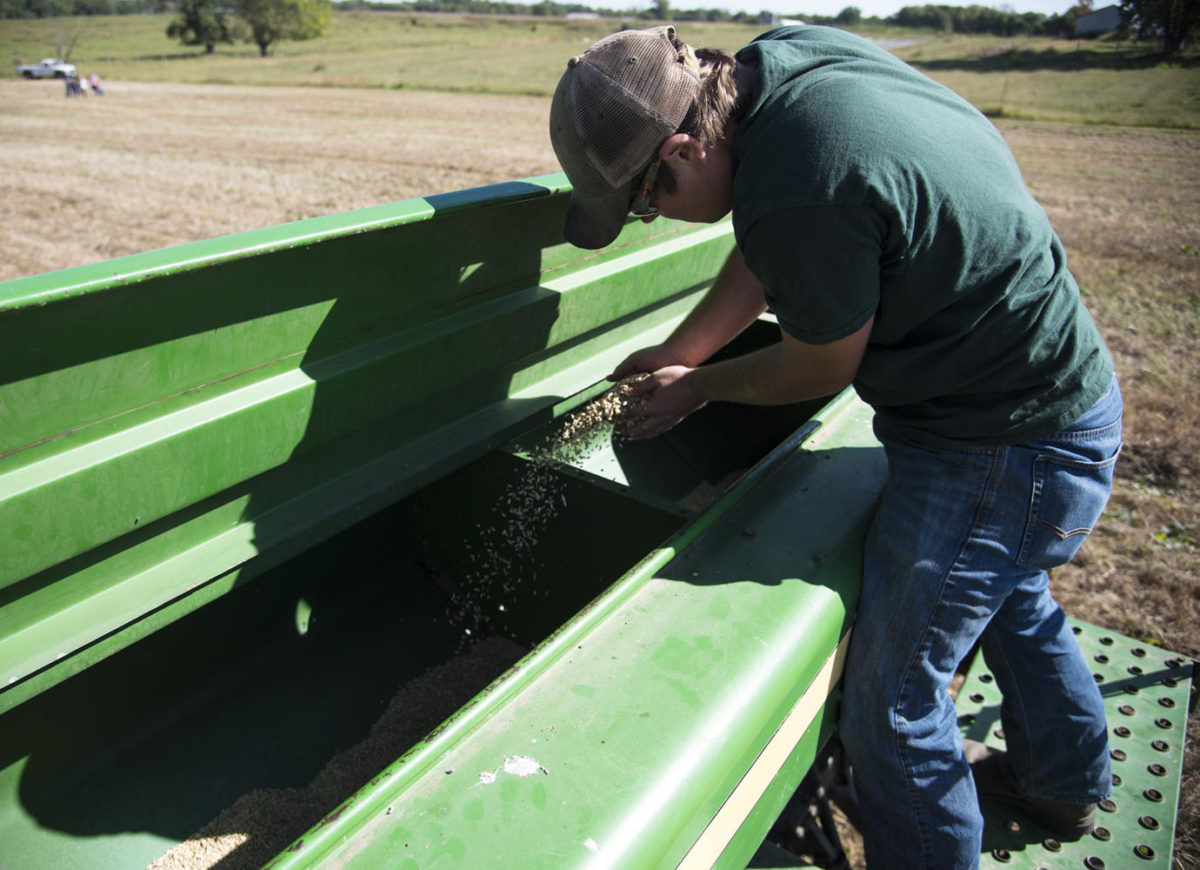Fermentation science program continues tapping into its potential
Logan Hosick, a junior from Cisne studying crop and soil science, throws barley seeds on a tractor Thursday, Sept. 28, 2017, at University Farms. (Athena Chrysanthou | @Chrysant1Athena)
October 4, 2017
SIU’s Fermentation Science Institute is looking at ways to expand and start selling its student-made beer around town and at campus events.
Students in the program work out of a small brewery in the McLafferty Annex, and program director Matthew McCarroll said they are coming up with ways to make it completely student-run and licensed to sell its finished products.
“We’d like to set that up as a student-run brewery where the students can develop their own recipes and make internal decisions on what to brew,” McCarroll said. “Then the idea would be to have an SIU tap at, say, Hangar 9 or something.”
Advertisement
McCarroll said ideally, this would happen within the next six months to a year. The process can be lengthy due to the licensing involved to commercially brew and sell products, he said.
The program would then give students both brewing experience and hands-on training of the business practices that go into selling beer, he said.
“Learning all of that, that’s the tricky part for new breweries when they start up,” McCarroll said. “If we get this going, our students will come out already being familiar with that.”
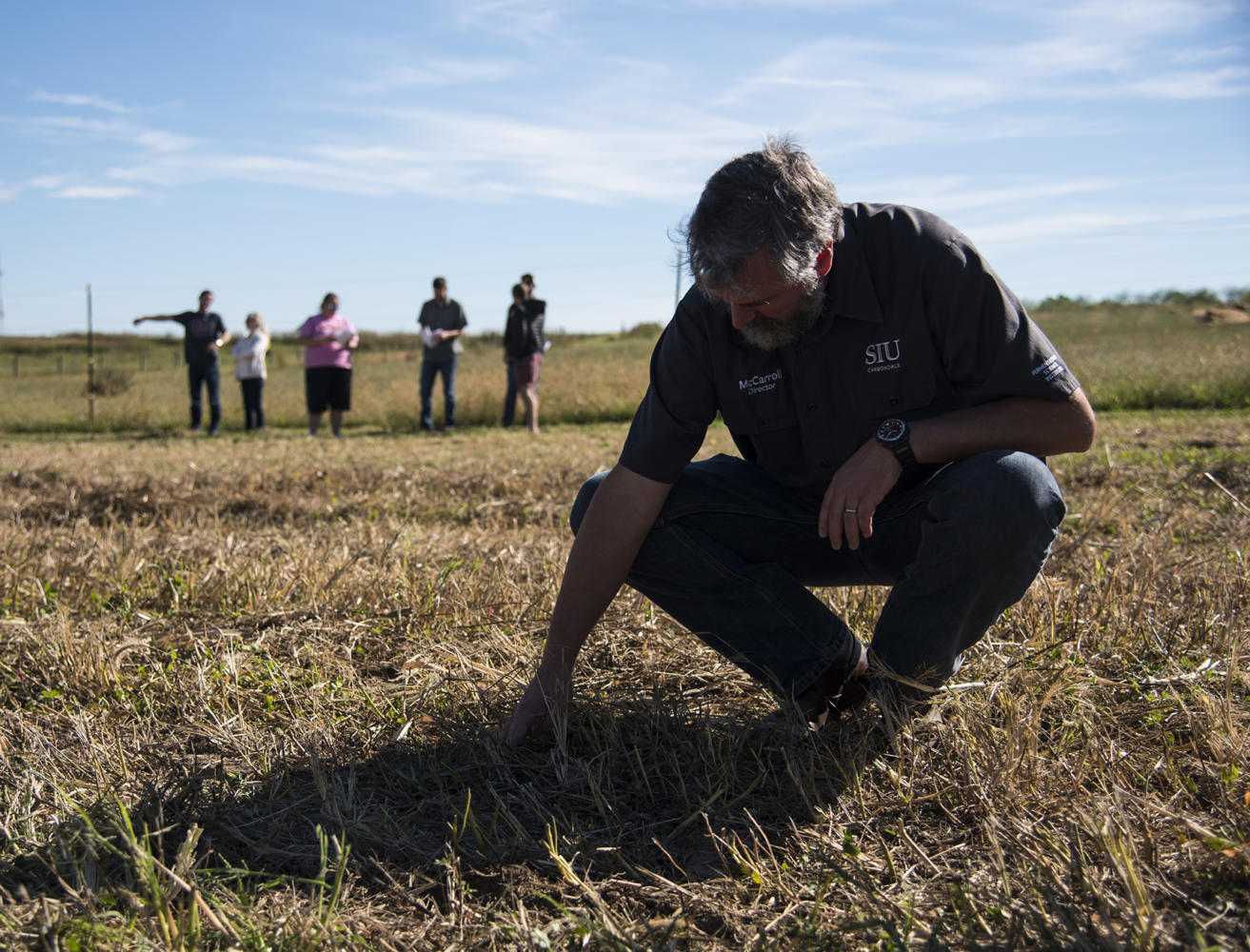
Associate professor Katherine Witrick said the brewing system students use is a smaller version of what big beer companies use so that students can learn how the equipment works without everything being automated for them.
“They need to have that background of understanding what’s going on,” Witrick said. “So if you were to go to something like Anheuser-Busch, where everything is completely automated, you need to understand why this valve is suddenly turning on and opening up, what’s going on.”
The pilot brewery is a half barrel system that is small enough to be operated regularly without costing a lot of money, but McCarroll said they could get bigger equipment if they were selling their products.
The Board of Trustees approved a measure last December to allow for the sale of alcohol at campus events, so the fermentation science program is now looking into selling beer at campus events as other beer companies do, McCarroll said.
Advertisement*
“We now have the ability to serve beer … it would be great if that was a campus-produced beer.” McCarroll said.
As part of a $120,427 grant from the U.S. Department of Agriculture the program received in August, students are also growing malting barley on campus.
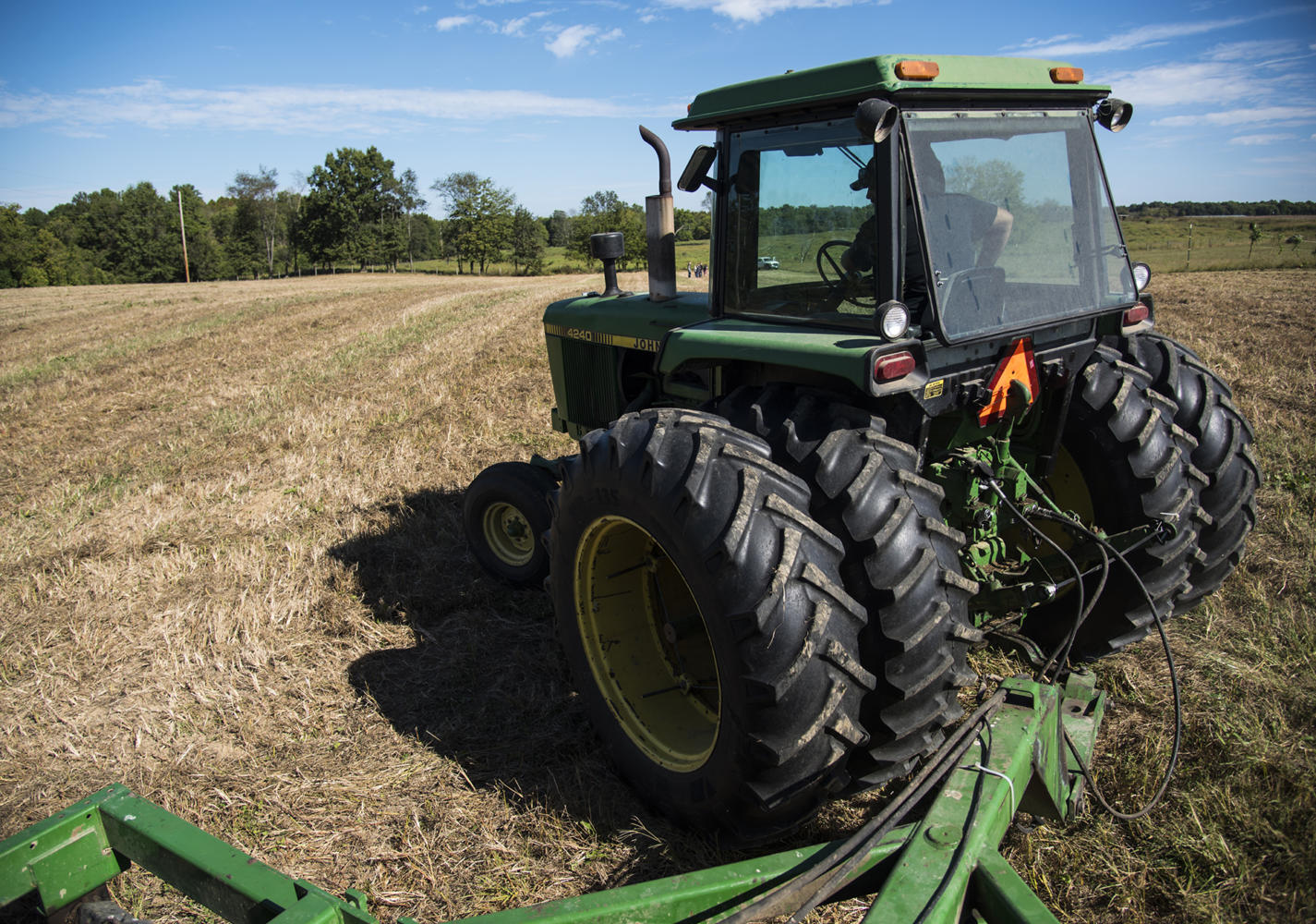
The barley, which was planted Thursday near University Farms, is a part of a malting facility the program is creating.
The facility will be housed in a section of the annex currently under construction. McCarroll is hoping to have it completed by the end of the academic year or possibly early summer.
“We’re trying to basically encourage the growing of malt, and other cereal grains that can be malted, to try and spur a micro-malting industry in the area,” McCarroll said.
Members of the fermentation science program teamed up with University Farms to plant the barley in a plot a little under four acres. They will go back in the spring to plant more, and McCarroll said the barley will be harvested late next summer.
“If things go well, we’ll end up with a decent amount of barley that we can use to malt in our facility,” he said. “We’ll use that for brewing within the program, but we can also bring that to market to some of the local breweries in the area in conjunction with other farmers and brewers in the area that will be growing grains that we’ll malt in our facility as well.”
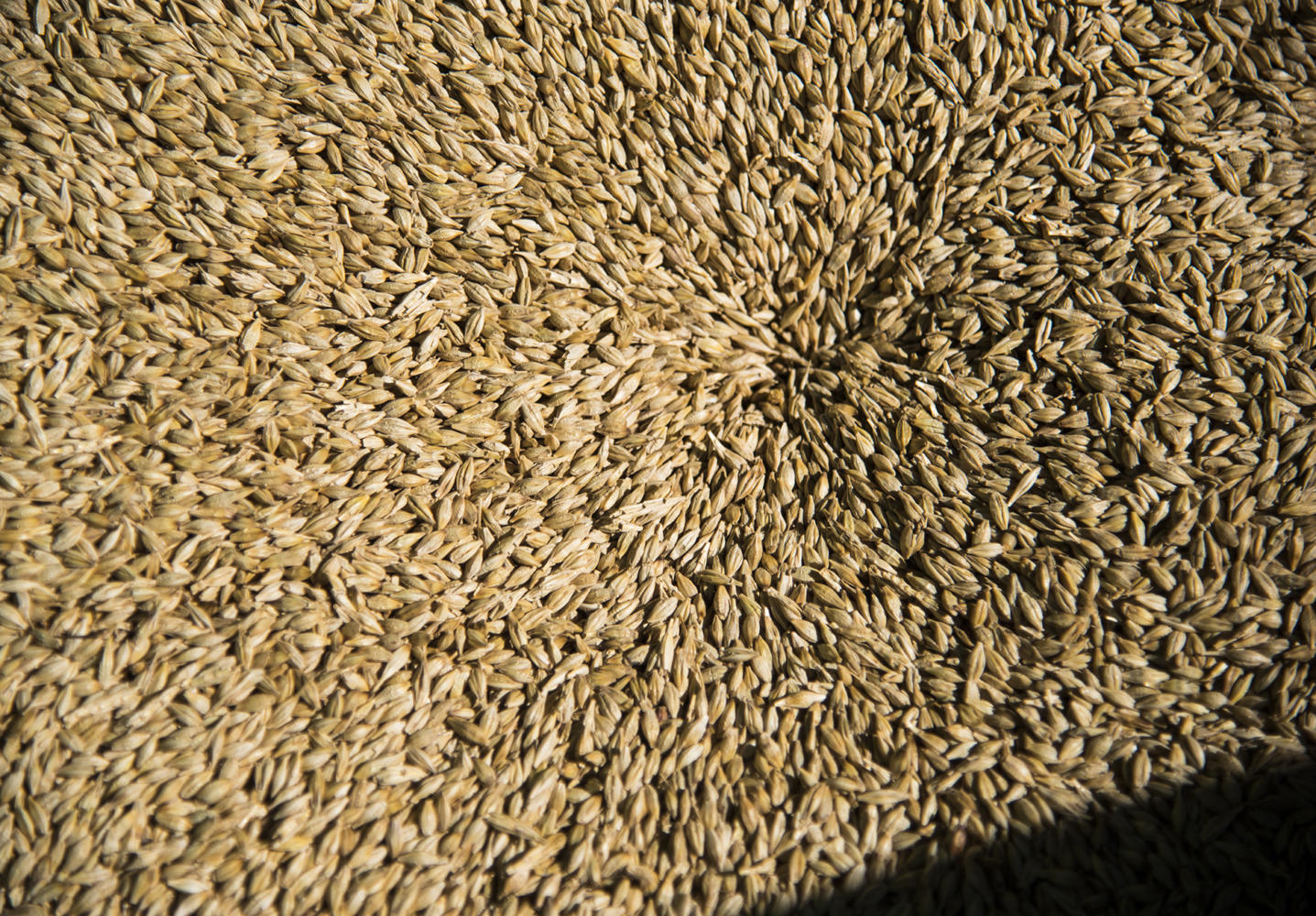
The program isn’t limited to just beer; students can learn how to produce almost anything that is fermented. Foods like wine, liquor, bread, cheese and sauerkraut are all made by fermentation science students, McCarroll said.
The program was established in 2014 and was moved into the McLafferty Annex in 2016. McCarroll said the program has “just started tapping into the potential of the building.”
The annex houses everything the students use to perform their experiments, from microscopes to specialized walk-in coolers and machines that can analyze the alcohol content of beer, wine or spirits, McCarroll said.
McCarroll said they also operate a service lab to which companies from all over the world can send in their samples for testing and analysis. This usually involves finding problems with the product, such as contaminating microbes or harmful bacterias, he said.
“It’s really starting to take off.” McCarroll said. “For the first part of the year, we’re averaging about thirty to forty analyses per month. For September, we haven’t finished yet, but we’re at 319 analyses.”
The service lab has been working closely with local wineries, which McCarroll said is convenient for them because they can receive their results within a day or two.
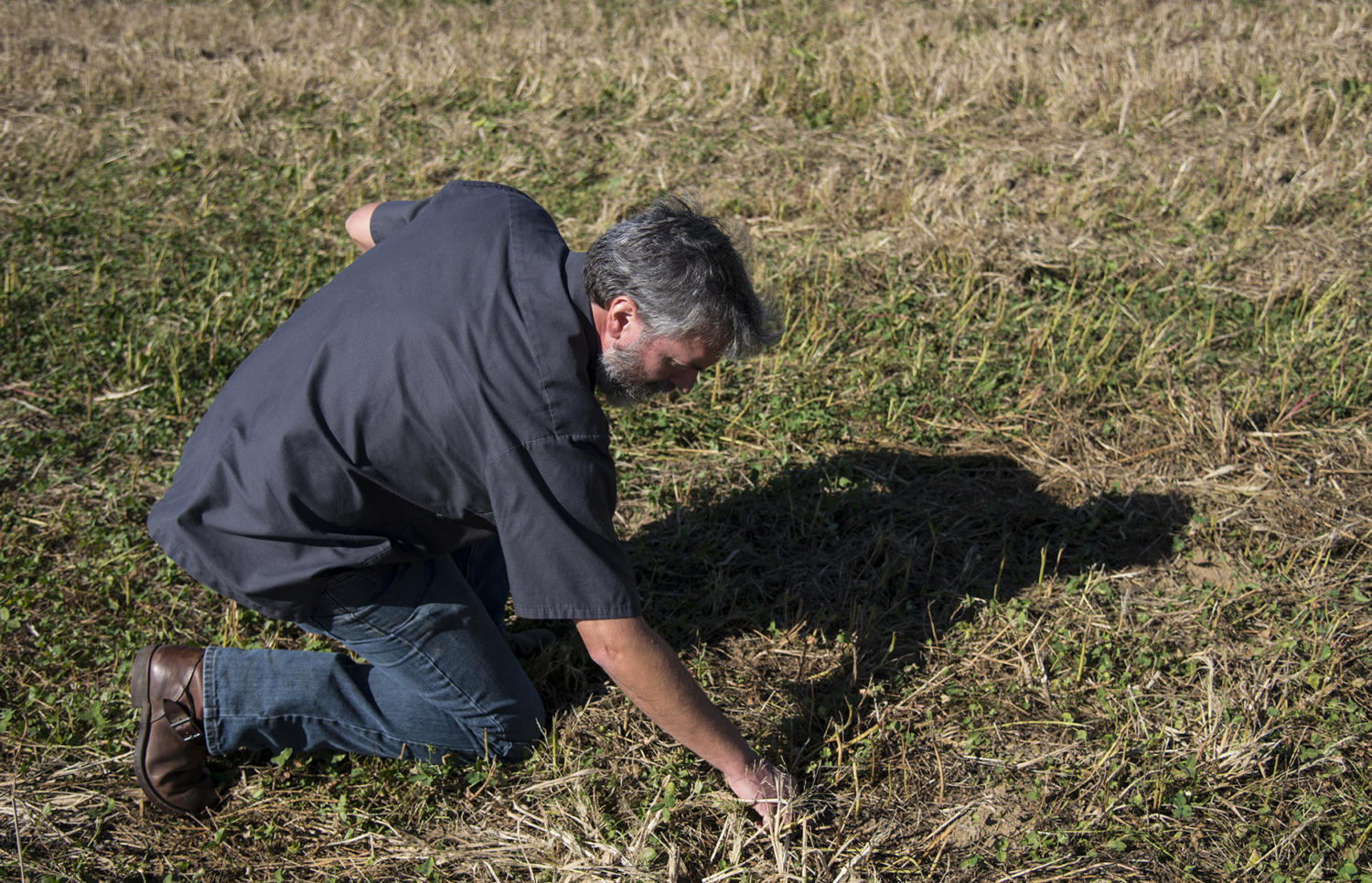
“We think we’re going to revolutionize the wine quality in southern Illinois,” McCarroll said. “Sometimes we get same day turn-around, but usually it’s next-day answers … They can really get quick decisions.”
Students wanting to test products are required to get to a certain level in their coursework and training beforehand, McCarroll said. This is because the lab is certified by the Federal Tax and Trade Bureau, meaning the program needs to maintain certain standards to be able to test outside products, he said.
“We have this kind of dual mission of helping the local industry, but also when we do that we’re helping the academic program as well,” McCarroll said. “Our students are getting exposure to that, both to our lab and also working with the other wineries.”
Staff writer Kitt Fresa can be reached at kfresa@dailyegyptian.com.
To stay up to date with all your southern Illinois news, follow the Daily Egyptian on Facebook and Twitter.
Advertisement



